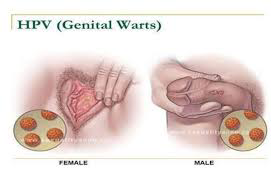
Genital Wart is a common Sexually transmitted Infection (STI) in the genital region of male and females. They are soft, small, painful, flesh-colored bumps or growths that appear on the genitals or near it. It is also discomforting and itching, they are a sexually transmitted infection (STI) caused by low risk strains of the human papillomavirus (HPV).
These strains, HPV 6 and HPV 11, are different from the high risk strains that can lead to cervical dysplasia and cancer.
Some warts are very small, still you can usually feel or see them. Healthcare providers may call genital warts condyloma. Warts can form separately or in clusters, they may be small, at 5 millimeters or less, though in some cases they develop into large masses
Where can Genital Warts Appear?
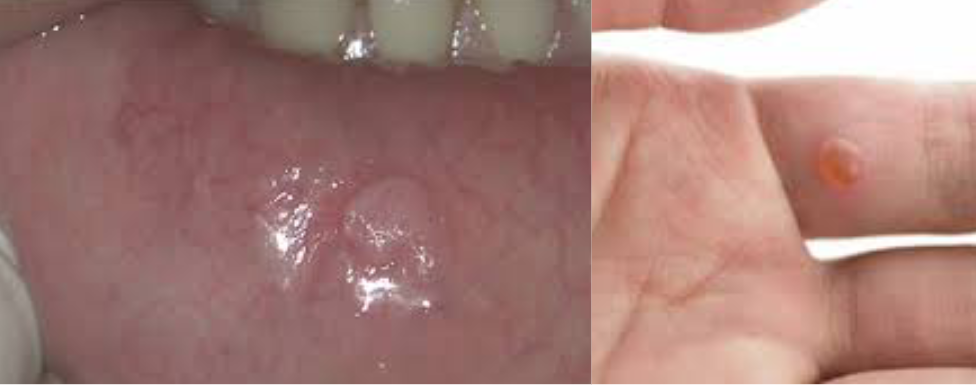
Genital Warts affects both in males and female.
For males it can grow on the all parts of the penis, scrotum and anus.
For females, it can grow on the vulva, the walls of the vagina, the area between the external genitals and the anus, the anal canal, and the cervix.
Also for the both genders, it can grow on the lips, mouth, tongue, or throat of a person who has had oral sexual contact with a person who has HP
Causes of Genital Warts
Genital wart is an Infection that is passed from person to another through sexual contact. Both if it’s visible or not, it can be transmitted. The human papillomavirus (HPV) causes warts and differ from the strains that cause warts on your hands or other parts of the body. There are more than 40 strains of HPV that affect the genital are
What are the risk factors for getting genital warts?
- Engaging in an unprotected sex with multiple partner
- Having had another sexually transmitted Infections
- Having sex with a partner whose sexual history you don’t known
- Becoming sexually active at a young age
- Having a compromised immune system, such as from HIV or drugs from an organ transplant
The following increases your chances of getting genital wart;
Genital warts symptoms
Symptom appearance maybe delayed after contact with the virus, making it impossible to know when you came in contact with HP virus.
Some common symptoms includes lumps or growths, pain and discomfort around your vagina, penis or anus that were not there before. However, you can carry the virus without developing actual wart.
Treatment
Some treatments can remove genital warts, but they may return as there is no cure for the infection that causes them, but the body may clear the infection over time. Some of the treatment options include;
Topical Medication: A person applies a cream or liquid directly to the warts for several days each week for several week
Cryotherapy: A healthcare professional applies liquid nitrogen to the area, causing blisters to form around the warts, which eventually fall off — sometimes after several session
Surgery: The person receives a local anesthetic before a surgeon removes the wart
Electrocautery: After administering a local anesthetic, a healthcare professional uses an electric current to remove the wart
Laser Treatment: A doctor removes the warts with an intensive beam of light
Freezing: A doctor or nurse freezes the warts. Sometimes the treatment is repeated several times. This can cause pains
Note: If you’re pregnant or thinking of becoming pregnant, it is important you tell your doctor as some treatments will not be suitable for you.
Complications
Cancer: Genital warts on the cervix has been linked to cervical cancer because it causes cervical changes (dysplasia) that can lead to cervical cancer.
Problem with Pregnancy: Having warts during pregnancy, the increased hormone levels may cause the warts to bleed, get larger or multiply. Warts on the vaginal wall can inhibit the stretching of vaginal tissues during childbirth. Large warts on the vulva or in the vagina can bleed when stretched during delivery
Extremely rarely, a baby born to a mother with genital warts develops warts in the throat. The baby might need surgery to keep the airway from being blocked.
Prevention
- Always use condoms or a dental dam during vaginal, anal or oral sex – but if the virus is in any in skin that’s not protected by a condom, it can still be passed on
- Avoid sex while on treatment for genital warts
- Get vaccinated
- Be monogamous with one sexual partner or limit your number of partner


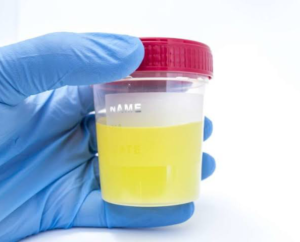
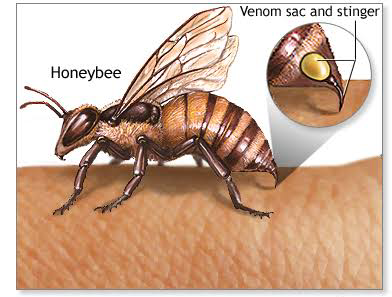
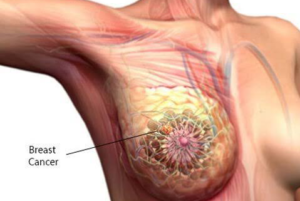


Leave a Reply